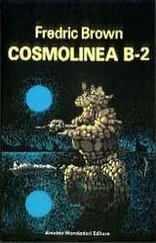Эллен Глазгоу - Barren Ground
Здесь есть возможность читать онлайн «Эллен Глазгоу - Barren Ground» весь текст электронной книги совершенно бесплатно (целиком полную версию без сокращений). В некоторых случаях можно слушать аудио, скачать через торрент в формате fb2 и присутствует краткое содержание. Жанр: Классическая проза, на английском языке. Описание произведения, (предисловие) а так же отзывы посетителей доступны на портале библиотеки ЛибКат.
- Название:Barren Ground
- Автор:
- Жанр:
- Год:неизвестен
- ISBN:нет данных
- Рейтинг книги:3 / 5. Голосов: 1
-
Избранное:Добавить в избранное
- Отзывы:
-
Ваша оценка:
- 60
- 1
- 2
- 3
- 4
- 5
Barren Ground: краткое содержание, описание и аннотация
Предлагаем к чтению аннотацию, описание, краткое содержание или предисловие (зависит от того, что написал сам автор книги «Barren Ground»). Если вы не нашли необходимую информацию о книге — напишите в комментариях, мы постараемся отыскать её.
Barren Ground — читать онлайн бесплатно полную книгу (весь текст) целиком
Ниже представлен текст книги, разбитый по страницам. Система сохранения места последней прочитанной страницы, позволяет с удобством читать онлайн бесплатно книгу «Barren Ground», без необходимости каждый раз заново искать на чём Вы остановились. Поставьте закладку, и сможете в любой момент перейти на страницу, на которой закончили чтение.
Интервал:
Закладка:
"Tell your wife it is hard things that wear well," she responded. "After all, somebody has to bear the burden, and I am better able to do it than any of the rest of you, except perhaps," she concluded indifferently, "James Ellgood."
"Yas'm. I'm downright glad you take that sensible view of it," the sheriff replied, as soon as he was capable of speaking. "Everybody about here knows that when they come to you, they'll get justice."
Justice! That was Nathan's favourite word, she remembered. She could hear him saying as plainly as if he were present, "Any man has a right, Dorinda, to demand justice." Strange how often Nathan's words, which she had scarcely heeded when he was alive, returned to her in moments of difficulty or indecision. Only in the last few years had she begun to realize her mental dependence upon Nathan.
"I reckon we can manage to get him over here to-morrow evening," Samuel Larch was saying. "Thar ain't no call for you to send all the way to the poorhouse. Maybe Reuben Fain will let us have that auto-wagon of his."
"Oh, I'll come for him in the big car in the morning," Dorinda replied. "It isn't my way to do things by halves."
The sheriff nodded. "Naw'm, it ain't yo' way to do things by halves," he echoed thankfully.
After the two men were out of sight, she turned apologetically to John Abner. Although he said little, for he was never a great taiker, she had observed that his face wore a look of severe disapprobation.
"There wasn't anything else to do, was there, John Abner?" she asked, in the deferential tone she reserved for a crisis. It was not often that Dorinda deferred, and on the rare occasions when she did so, she was able to administer a more piquant flattery than the naturally clinging woman has at her command.
"It looks to me as if they were letting you down," John Abner rejoined moodily; but his face cleared under her persuasion. After all, what he liked best was to be treated as an authority not only on farming, but on human nature as well. The fact that he had lived as a recluse, and knew nothing whatever of life, did not interfere with the sincerity of his claim to profound wisdom. Men were so immature, she found herself thinking; and they were never so immature as when they strutted most with importance. Since the emotional disaster of her youth, she had been incapable of either loving or hating without a caustic reservation; and she felt that the hidden flaw in her relations with men was her inability to treat a delusion of superiority as if it were a moral principle. This was a small indulgence, she imagined, to a woman who loved passionately; but to one who had safely finished with love and attained the calm judgment of the disillusioned, it was an indulgence which might prove to be particularly irksome.
Slipping her arm through John Abner's, she walked with him into the house. "Well, of course, in a way you're right; but after all, even if they are imposing on us, we couldn't very well refuse to do anything."
Though the two farms would go to John Abner at her death, there were moments when, notwithstanding his affection for her, she suspected uncomfortably that he would like complete authority while she was living. Not that he was ever disagreeable or ungenerous about the way she managed him. He was, she knew, honestly devoted to her, and he admired her without the pity that had always tempered her admiration for him. But he shared, she told herself, with all males who were not milksops, the masculine instinct to domineer over the opposite sex.
"Well, if it's anybody's business, it's James Ellgood's," he protested.
She raised her straight grey eyebrows with a quizzical smile. "All the same you can hardly blame James Ellgood for not making it his business. Nothing will ever let him forget that Jason drove Geneva out of her mind."
"Well, perhaps he did, but there was no law to punish him."
"That's what James Ellgood feels, of course, and I suppose he is right. If it were simply a question of punishment-"
"You mean it's more than that?"
"Well, isn't it?" She had learned that she could always win him to her point of view by disguising a naked fact in the paraphernalia of philosophy. "From our side, I suppose it's one of humanity." Though she despised sophistry as heartily as she despised indirectness, she could bend both to her purpose when it was a matter of compulsion.
"If you mean that our humanity is more important than his punishment?" he returned in a mollified tone.
"Yes, I do mean that. You have said it so often yourself." That would finish his opposition, she knew, and without his opposition, life on the farm would be easier for the next two or three weeks.
"Won't it make a lot of trouble?" he inquired.
She frowned. "I'm afraid it will. Of course, if he gets better, he can move over to Five Oaks, and anyway the authorities ought to make some kind of provision for him. We can't be expected to take over the poor-farm." Her tone was suddenly bitter with memory; but she concluded hastily: "In the meantime, I'll warm the spare room and get it ready. If the doctor says he must have fresh air, we can move his bed out on the back porch."
John Abner looked resentful. "I'm sorry for the poor devil, of course, even if he did drive his wife crazy; but I don't see the sense in turning the place upside down for somebody who hasn't the slightest claim on you. He isn't even a poor relation."
"He isn't anybody's poor relation, that's the trouble."
"I'm not so sure." John Abner could be brutally candid at times. "There are a lot of Idabella's mulatto children still hanging about Five Oaks."
She shivered with disgust. "What the law doesn't acknowledge, I suppose it doesn't bother about."
"Well, it isn't any business of mine," John Abner said, after deliberation. "If you choose to bring him here, of course you have the right. But I hope you aren't going to wear yourself out waiting on him. You've got no moderation in such things. After Snowbird's sickness last winter, you didn't look like yourself."
She shook her head. "I'd do much more for Snowbird. But I shan't wait on him. I'll get Fluvanna's sister, Mirandy. She's an old woman, and a good hand with sick people, even if she hasn't any sense in the dairy." As she finished, she heard a voice in her mind asking distinctly, "Why am I doing this? Why should I take the trouble?" And there wasn't any answer. Even when she dragged her mind for an excuse or even an idea, she could not unearth one. She had stopped loving Jason thirty years ago; she had stopped hating him at an indefinite period; she had stopped even remembering that he was alive; yet she could not, without doing violence to her own nature, let him die in the poorhouse. After all, it was not her feeling or lack of feeling for him, it was the poorhouse and her horror of the poorhouse that decided his fate.
"I'll have to go with you," John Abner was saying. "You can't manage it by yourself."
"No. I'd rather have you. If we start right after dinner, that ought to bring us back before the milking is over. The road is rough, I'm afraid. We'll have to take some pillows in the back of the car."
"If he's bad off, perhaps Doctor Stout won't let him come," John Abner suggested hopefully.
"Well, we'll stop at the doctor's house on the way. That's why I want to start early."
That night, after the last of the day's work was over, they sat in front of Dorinda's fire and talked as they used to talk when John Abner was a boy and had not been warped by disappointment. Their thoughts were in the future, not in the past, and Dorinda's visions were coloured by the optimism which she had won more from perseverance than from any convincing lesson of experience. Because of the very defects of his qualities, John Abner suited her. It was true that his companionship had its imperfections; but she would not have exchanged his sullen reticence for the golden fluency of the new minister at Pedlar's Mill. Her stepson's personality was attractive to her, for he gave an impression of inexhaustible strength in reserve; and in the matter of disposition he influenced her less as an example than as a warning, which, after all, she reflected, was the kind of influence she needed.
Читать дальшеИнтервал:
Закладка:
Похожие книги на «Barren Ground»
Представляем Вашему вниманию похожие книги на «Barren Ground» списком для выбора. Мы отобрали схожую по названию и смыслу литературу в надежде предоставить читателям больше вариантов отыскать новые, интересные, ещё непрочитанные произведения.
Обсуждение, отзывы о книге «Barren Ground» и просто собственные мнения читателей. Оставьте ваши комментарии, напишите, что Вы думаете о произведении, его смысле или главных героях. Укажите что конкретно понравилось, а что нет, и почему Вы так считаете.










![Эллен Дедженерес - Кроме шуток [Как полюбить себя, продать дуршлаг дорого, прокачать мозг с помощью телешоу и другие истории от Эллен Дедженерес] [litres]](/books/384873/ellen-dedzheneres-krome-shutok-kak-polyubit-sebya-p-thumb.webp)

